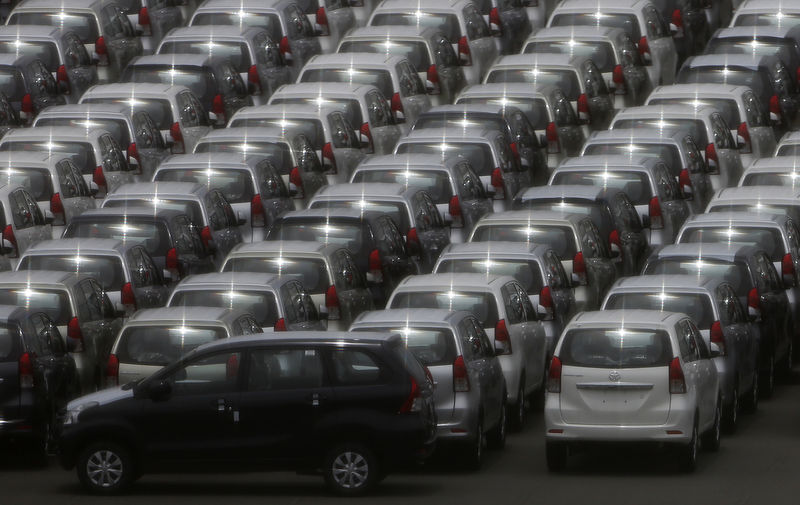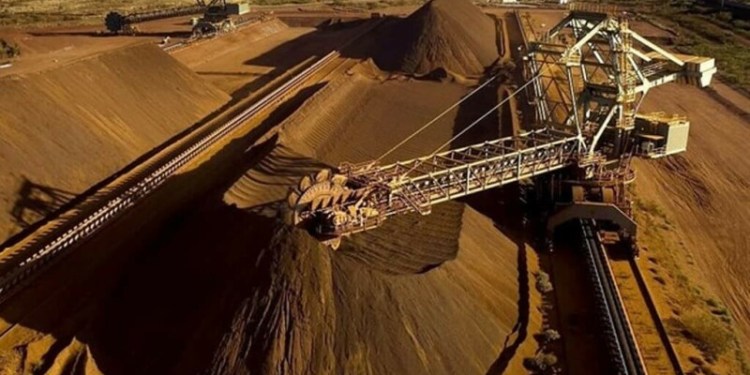 © Reuters. Cars are parked to prepare for export at a port in Yokohama
© Reuters. Cars are parked to prepare for export at a port in YokohamaBy Kaori Kaneko
TOKYO (Reuters) – Higher U.S. tariffs on Japanese car exports are less likely now the two nations agreed to start new trade talks, economists said, but most think U.S. trade friction with China and other economies will have a significant impact on Japan.
The United States had threatened to slap 25 percent tariffs on auto exports from Japan but Washington agreed not to do so while fresh trade talks are underway.
President Donald Trump has made clear he is unhappy with Japan’s $69 billion trade surplus with the United States – nearly two-thirds from cars – and wants a two-way agreement to address it.
Twenty-seven of 35 analysts said the chance of higher American tariffs on Japanese cars declined “significantly” or “to some extent”, the Oct. 3-12 Reuters poll showed.
But many analysts predicted Washington may still raise tariffs, which currently stand at 2.5 percent on Japanese autos and a 25 percent tariff on trucks.
“There is no change in Washington’s stance that it is demanding Japan cut its trade surplus with the U.S.,” said Atsushi Takeda, chief economist at Itochu Economic Research Institute.
“So there is still a chance that Washington will execute some kind of restrictions on Japan’s auto exports to the U.S. including higher auto import tariffs,” he said.
In an escalating trade war between China and the United States, Trump warned there was much more he could do that would hurt China’s economy further, showing no signs of backing off an escalating trade war with Beijing.
Asked about the negative impact from such trade friction on Japan, 25 of 34 economists projected it would be “very significant” or “significant,” the poll found.
“Especially China is a very important market for Japan,” said Stefan Grosse, economist at Nord/LB. “So there will be an impact.”
NATURAL DISASTERS
Economic growth in Japan likely slowed in the July-September quarter to an annualized 0.5 percent due partly to natural disasters, analysts said, but the lull will be temporary.
Typhoons and flooding in western Japan and an earthquake in the northern island of Hokkaido disrupted production and distributions as well as tourism.
Tokyo will compile an extra budget worth around 940 billion yen ($8.4 billion) for disaster relief, government sources said on Thursday.
“The economic growth likely temporarily weakened in July-September due to natural disasters,” said Yosuke Yasui, senior economist at Japan Research Institute. “But we expect domestic demand will lead the economic recovery.”
For the fiscal year through next March, the economy is expected to grow 1.2 percent, compared with a 1.1 percent projection made in the September survey.
Japan plans to raise a sales tax in October 2019, which would tip the economy to an annualized 2.9 percent contraction in the fourth quarter next year, the poll found, but smaller than a 3.5 percent contraction projected last month.
Consumer inflation is expected to remain subdued, well below the Bank of Japan’s 2 percent target.
The core consumer price index, which includes oil products but excludes fresh food prices, is expected to rise 0.9 percent this fiscal year and at the same rate – excluding effects of a planned sales tax hike – next year, the poll showed.
Most economists forecast the Bank of Japan will start unwinding its ultra-loose monetary policy if it decides to change its policy, while only a few expect the bank could adopt additional easing steps, the poll found.
Either way, most economists polled predicted it will likely be sometime in 2020 or later when the BOJ will make its next move, it showed.
Source: Investing.com





























